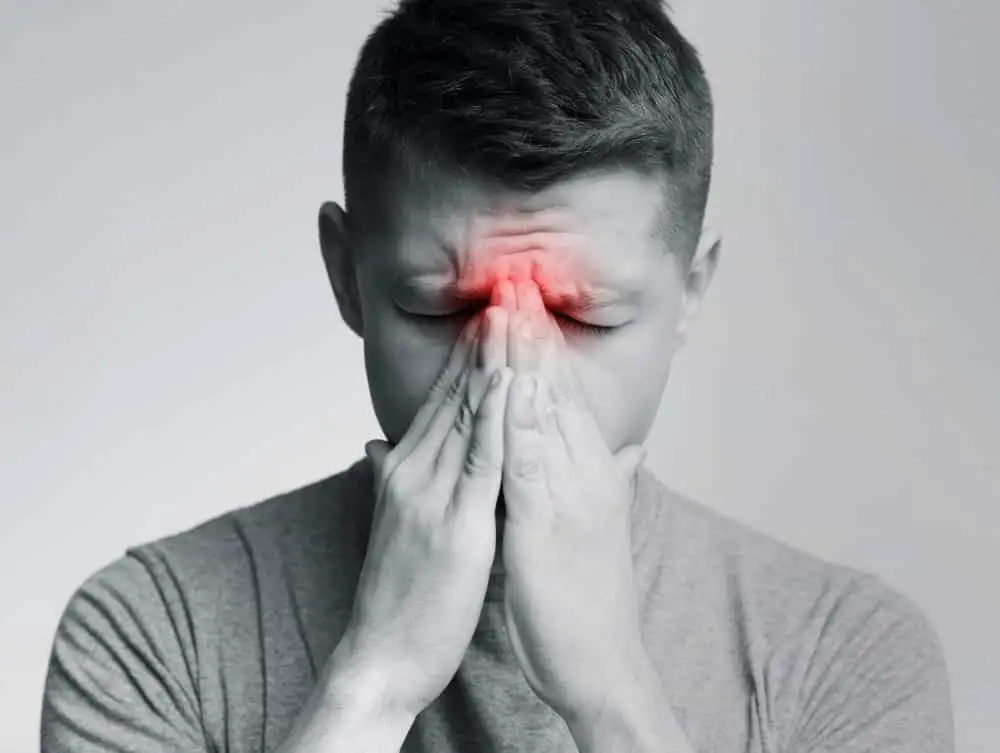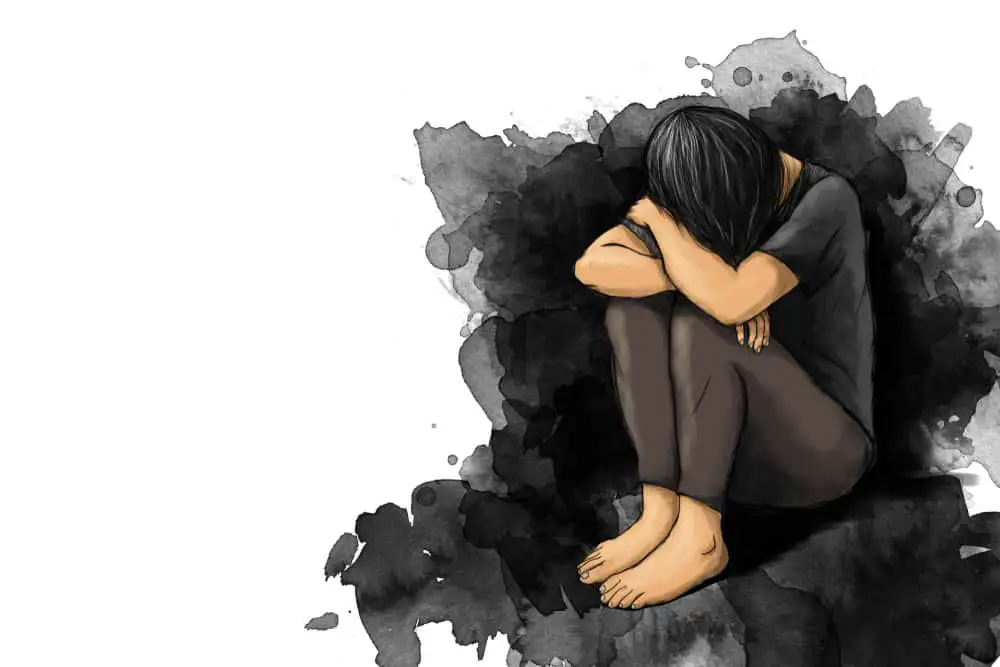According to research from the University of California, we can experience 27 distinct emotions1. Many of these are so similar that they’re hard to identify when we experience them. Are we just admiring our husband in his navy blue suit, or do we adore him? Are we feeling a sense of awe at the snow-capped mountain before us, or are we entranced? Maybe we’re both?
Fear and anxiety are another example of emotions that can be easily confused. They produce similar physiological effects, and are unpleasant to experience. So how do we tell them apart? What’s the difference between fear and anxiety?
Fear Vs Anxiety—How To Tell The Difference
Every emotion produces physiological and psychological effects that we can identify if we pay attention. Fear is an emotion that evolved to keep us safe, and is the reason that our species survived. A million years ago, if a human living on the Chinese continent saw a flash of black and orange, their heart would start pounding, their body would become doused with sweat, and they might struggle to breathe, which alerts them to the fact that they’d better get ready to fight the approaching tiger, or fly from it.
Anxiety is thought to have evolved as a way to protect us from future danger—about the possibility of us being ravaged by a tiger, rather than the reality. Our human who encountered the tiger may develop a sense of anxiety when returning to the same spot, because there’s a chance he’s entered the tiger’s territory, which may be watching him and licking its lips. As a result, he may decide to avoid the spot next time, which increases his chance of survival.
Fear produces some of the most obvious effects because it’s critical for us to pay attention to it (with the exception of someone suffering from a mental health condition such as a panic disorder, or PTSD). Anxiety also produces strong effects, but many of them are the same as fear, which can make it difficult to distinguish. But there are some clear differences between the two, particularly for how we behave. In the table below, you’ll find the physiological, psychological, and behavioural effects of anxiety vs fear, to help you identify what you’re feeling.
Effects Of Fear Vs Anxiety
| Fear | Anxiety (differences italicised) | |
| Physiological (body) | SweatingRapid heartbeatQuick breathingShortness of breathTremblingNauseaGoosebumpsTight chestHot flushes or chillsDry mouthUpset stomach | SweatingRapid heartbeatQuick breathingShortness of breathTremblingNauseaTight chestHot flushes or chillsUpset stomachDizzinessHeadachesMuscle pain |
| Psychological (mind) | A sense of doomFeeling overwhelmedFeeling out of controlFeeling detached from your bodyUnable to think clearly | A sense of doomFeeling overwhelmedUnable to think clearlyExcessive worryCatastrophizingObsessive thinkingRestlessnessRacing thoughtsIrritabilityFatigue |
| Behavioural | Running away or hiding (flight response)Freezing (freeze response)Clenched fistsViolent behaviour | Unable to sit stillSocial withdrawalEasily startledDifficulty performing everyday tasksAlcohol and drug usage |
Fight Or Flight—Anxiety Or Fear?
The fight or flight response is how our body reacts to extreme fear, triggering a choice between fighting the threat before us, or running away from it. This response is extreme, easily identifiable, and is in the realm of fear rather than anxiety.
References
- Bruce Y. Lee, 2017, Here Are The 27 Different Human Emotions, According To A Study, Forbes
How To Fix Sinus Headaches | Symptoms, Treatments, Causes
Sinus headaches can be extremely painful, but they are often misdiagnosed for migraines or regular headaches, which have different treatment options. In this article, we explore exactly what a sinus headache is, what causes them, and provide some of the best treatment options so that you can get some relief from your pain. What Is…
What Is The Difference Between A Psychologist & Psychiatrist?
If you’re struggling with mental health issues, you may be considering getting professional help. And if that’s the case, you might be asking yourself “what is the difference between a psychologist and a psychiatrist?” The confusion is justified because the two are very similar. But they do have distinct differences. In this article, we explore…
Is Depression Caused By A Chemical Imbalance? Debunked
The human brain is a highly complex organ that contains about 86 billion nerve cells. These can make a possible 1,000 trillion unique connections, and the cells themselves can send pulses of electrical information at speeds of up to 400 kilometres per hour4. It’s truly an amazing organ that has rocketed us to the very…




